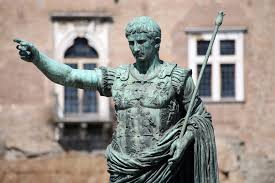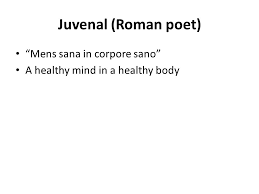Roman Virtues, Values & Prayers: Healthy mind in a Healthy Body
(005875.811-:E-000062.43:N-AC:R-SU:C-30:V)
[Christians tend to be misguided with regard to the Pre-Christian world. They think that Pagan whites were “evil” and that we were evil until “good Christianity” made us good and brought us civilisation. However, the greatest civilisations existed before Christianity and the argument can be easily made that Christianity brought the downfall of the greatest military and political system that whites ever had.
So what were the values of the whites of the Roman Empire? Here is a poem from Roman times and this commentary also on what the Ancient Greeks also believed. Notice the suggestion that even a long life is not worth praying for. It is more important what you do with your life. We’ll return to Roman virtues.
Just a note: In our modern world we’re dealing with Jews who are a perfect example of a people with unhealthy minds who have unhealthy bodies. These sick people should in no way be a guiding light for any whites. They are a filth we can do without. Jan]
Mens sana in corpore sano is a Latin phrase, usually translated as “a healthy mind in a healthy body”. The phrase is widely used in sporting and educational contexts to express the theory that physical exercise is an important or essential part of mental and psychological well-being.
History
The phrase comes from Satire X of the Roman poet Juvenal (10.356). It is the first in a list of what is desirable in life:
-
English translation: - You should pray for a healthy mind in a healthy body.
- Ask for a stout heart that has no fear of death,
- and deems length of days the least of Nature’s gifts
- that can endure any kind of toil,
- that knows neither wrath nor desire and thinks
- the woes and hard labors of Hercules better than
- the loves and banquets and downy cushions of Sardanapalus.
- What I commend to you, you can give to yourself;
- For assuredly, the only road to a life of peace is virtue.
-
In original Latin: - orandum est ut sit mens sana in corpore sano.
- fortem posce animum mortis terrore carentem,
- qui spatium vitae extremum inter munera ponat
- naturae, qui ferre queat quoscumque labores,
- nesciat irasci, cupiat nihil et potiores
- Herculis aerumnas credat saevosque labores
- et venere et cenis et pluma Sardanapalli.
- monstro quod ipse tibi possis dare; semita certe
- tranquillae per virtutem patet unica vitae.
-
-
-
-
-
-
-
- —Roman poet Juvenal (10.356-64)
-
-
-
-
-
-
Traditional commentators believe that Juvenal’s intention was to teach his fellow Roman citizens that in the main, their prayers for such things as long life are misguided. That the gods had provided man with virtues which he then lists for them.
Over time and separated from its context, the phrase has come to have a range of meanings. It can be construed to mean that only a healthy mind can lead to a healthy body, or equally that only a healthy body can produce or sustain a healthy mind. Its most general usage is to express the hierarchy of needs: with physical and mental health at the root.
An earlier, similar saying is attributed to the pre-Socratic philosopher Thales:
- ??? ????????, “? ?? ??? ???? ?????, ??? ?? ????? ???????, ??? ?? ????? ???????????”
- What man is happy? “He who has a healthy body, a resourceful mind and a docile nature.”[1]
Source: https://en.wikipedia.org/wiki/Mens_sana_in_corpore_sano
Alex Linder‘s Pieville - His personal Twitter-like Social Media
Alex Linder was thrown off Gab, and he created his own Gab/Twitter website. It‘s called PieVille. You can follow him there. Jan is also there. Just search for: @AlexLinder or @[email protected] or @historyreviewed
Kenya: Witchcraft: The devil told me to have sex with sheep
Witchcraft is rampant across Africa. This story is incredibly weird and bizarre. Other Blacks said this Black guy was also having sex with a dog. This story makes for some insane reading. I published this on my old website.
Best Independent Website that monitors Ukrainian Tank losses in Ukraine War
Oryx is a brilliant independent Dutch website that monitors lots of military losses including the losses of Russian and Ukrainian tanks. They ONLY count vehicles that they can get photos of and can prove that these are the correct vehicles that were destroyed. This link will take you to see the verified Ukrainian tank losses and you can click to see the photos.


